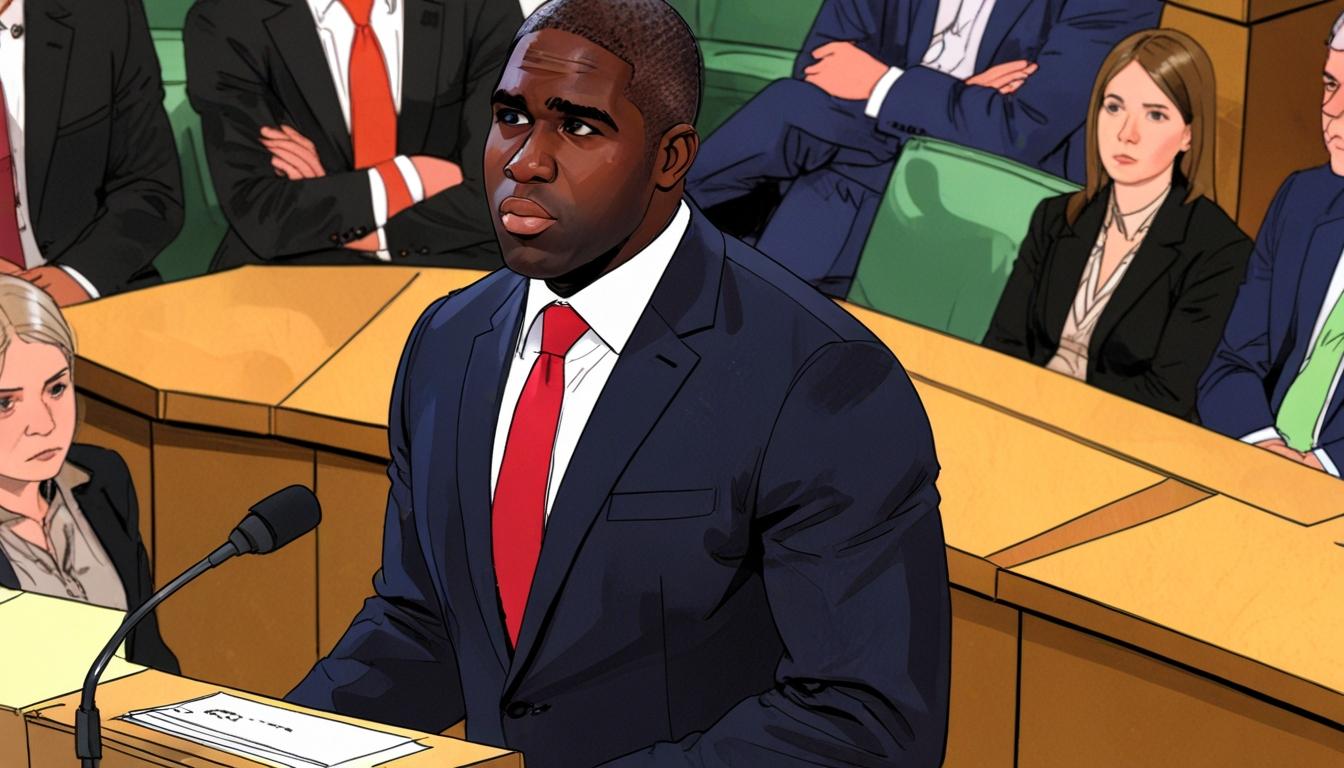In recent discussions surrounding the ongoing conflict in Ukraine, UK Foreign Secretary David Lammy has raised serious questions about Russian President Vladimir Putin's sincerity in peace negotiations. Describing Putin's tactics as “prevaricating” and “obfuscating,” Lammy's remarks reflect a growing frustration among political observers regarding the Labour government's approach to foreign policy. This comes in the wake of the troubling new political landscape following the recent general election, where accountability and a firm stance on international aggression are now more crucial than ever.
Lammy's comments emerged during a parliamentary session focused on the implications of Moscow's actions on global security. His assertions that the Kremlin's peace overtures are mere smoke and mirrors come as no surprise, especially given that Russia has publicly indicated a willingness to engage in talks while simultaneously conducting military operations against Ukraine. This duplicitous behavior tarnishes the credibility of any proposed discussions and underscores the need for a more robust and uncompromising stance from the UK.
European leaders, including EU foreign policy chief Kaja Kallas, have echoed similar sentiments, expressing skepticism about Russia's intentions. Kallas pointedly stated that if Russia were genuinely committed to peace, it would halt hostilities immediately. This assertion highlights the precariousness of the current diplomatic efforts and calls into question the effectiveness of the new Labour government's handling of this critical international crisis.
As Lammy attended international gatherings, the opportunity for the UK to exert meaningful influence in support of Ukraine has become essential. However, the current administration's approach lacks the decisive leadership needed to galvanize true international support against Russian aggression. Initiatives discussed, like a Special Tribunal for prosecuting war crimes in Ukraine, are commendable but serve as a reminder of the urgency and gravity of the situation—the UK must lead, not just follow.
With the Istanbul talks on the horizon, hopes for a ceasefire hang tenuously in the balance. While Ukrainian President Volodymyr Zelenskyy remains steadfast in confronting Putin directly, the Labour government's timid posture risks emboldening further aggression from Russia and undermining Western unity. The reality is that effective leadership hinges on a coalition built from strength, clarity, and unwavering resolve—not the indecision and half-measures currently on display.
As nations work toward a resolution to the conflict, it is absolutely imperative for the UK to adopt a cohesive and aggressive strategy against any encroachment on sovereignty and territorial integrity. The Labour administration's failure to take a strong, consistent stance against Russian manipulation not only jeopardizes Ukraine's future but could also embolden other nations to pursue similar aggressive actions under the guise of diplomacy.
In the coming months, the efficacy of these diplomatic efforts will be under constant scrutiny as Putin continues his calculated maneuvers. The international community must be vigilant and fortify its defenses, demanding accountability from Russia that the current leadership so far seems unprepared to assert. The preservation of Ukraine's sovereignty is a shared obligation that should be prioritized over political posturing in Westminster.
Source: Noah Wire Services
